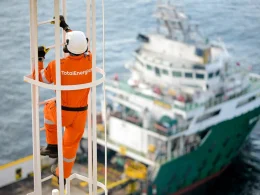IKEA Australia has released its FY24 Annual Summary and Sustainability Report, highlighting significant environmental and social progress. The company reports an 89% reduction in its operational climate footprint since FY16, while revenue grew by 68% over the same period.
Globally, IKEA has cut absolute emissions by 30% from its FY16 baseline and aims for a 50% reduction by 2030, even as business operations expand.
In FY24, IKEA Australia achieved 100% renewable electricity use across all retail operations, combining onsite generation and large-scale renewable energy certificates. Energy efficiency has improved by 16% since FY16, with seven out of ten stores no longer reliant on fossil fuels. All sites are expected to transition to electric heating and cooling by 2030.
Product and food waste reduction efforts also continued, with a 74.3% operational waste recycling rate. The company aims to achieve 100% waste avoidance or recycling by 2030. Initiatives include the Waste Watcher AI programme, which has reduced food waste by 37% since 2021, and product recovery efforts that diverted 976,000 items from landfill in FY24.
In FY24, 45% of customer orders were delivered via zero-emissions vehicles, peaking at 65% in January 2025. IKEA has invested $4.5 million in electric vehicle charging infrastructure across all Australian stores and its distribution centre. The company aims for 100% of customer deliveries to be zero-emission, expecting to reach 90% coverage in metro areas by 2025.
IKEA Australia employed 3,778 people in FY24 and achieved gender balance in management positions, with a 3.5% gender pay gap. Inclusive hiring practices and industry-leading paid parental leave were also noted. The company remains accredited as a Family Inclusive Workplace.
Workplace inclusion initiatives were benchmarked on the Australian Workplace Equality Index (AWEI), assessing LGBTQ+ inclusion practices.
Since 2020, over 220 participants have taken part in IKEA Australia’s Refugee Workforce Inclusion programme, including 35 permanent hires in FY24. Participants represent 23 cultural backgrounds and speak 43 languages.
IKEA also partnered with Save the Children Australia to support survivors of domestic and family violence. Efforts in FY24 supported 647 women and children through financial aid, design assistance for refuges, and awareness campaigns.
Through a partnership with Good360, IKEA redirected excess products worth over $485,000 to 42 charities, supporting more than 4,850 people and preventing over five tonnes of waste from reaching landfill.
Plant-based menu options continue to expand, with 44% of main dishes now plant-based. The company aims for 50% of restaurant meals to be plant-based by 2025.

















